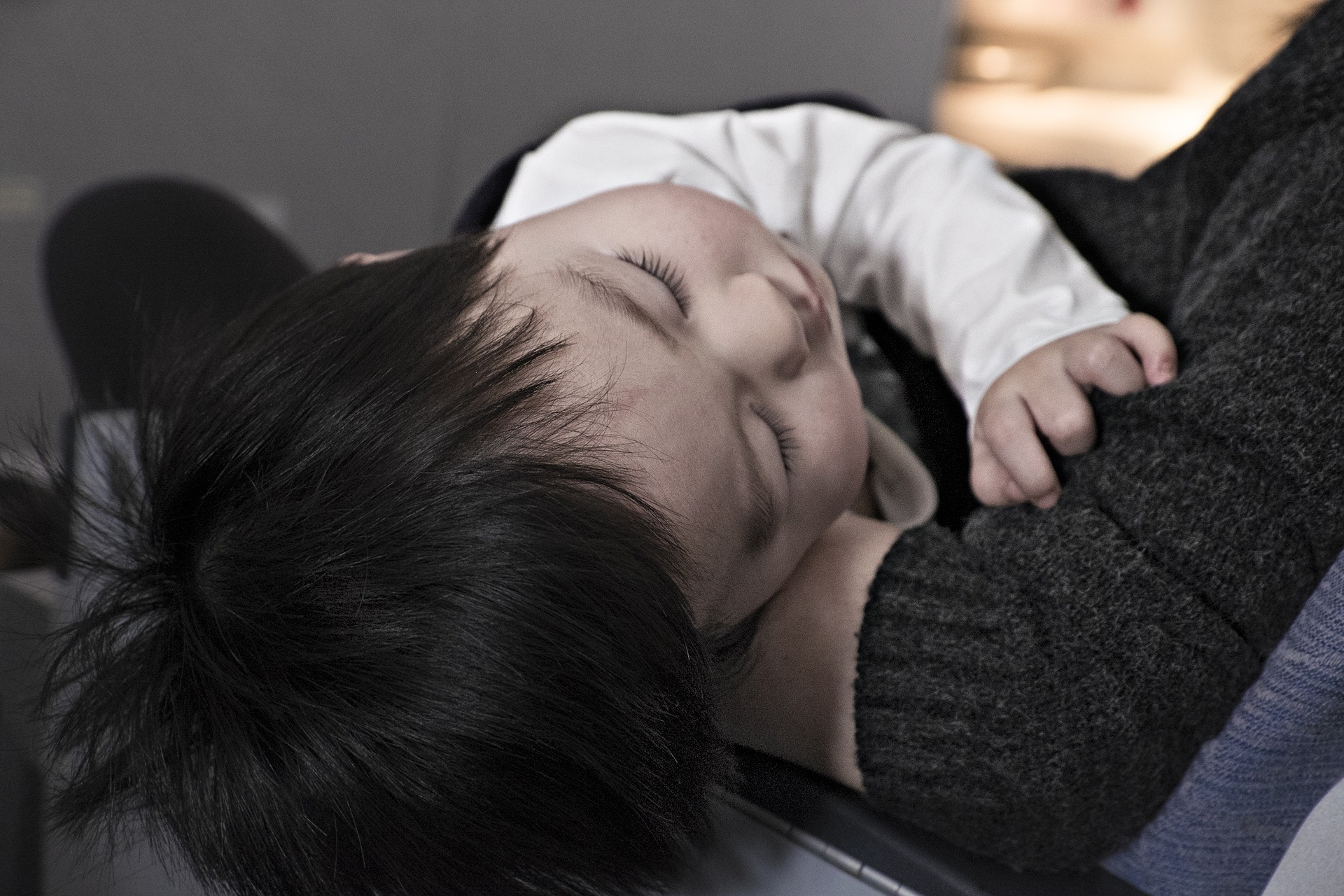… they don’t work. Okay, they can work, but I wish that their promoters would be more open about their limits instead of pretending that their chosen technique is the “best one” for all babies.
I’m writing this with a light headache and heavy tiredness after a particularly bad night’s rest. Our baby woke us up multiple times, including a few times where she woke up crying hysterically. So, none of us slept well.
Most likely, the excitement of the previous day proved too much. We’d gone out to get our hair cut (finally, after months of coronavirus lockdown), and to do some much needed shopping. Everything was so exciting that she managed only one nap of about half an hour. Over-tiredness tends to cause worse sleep at night…
Most Babies Start Sleeping Through the Night by X Months, But Your Baby Isn’t “Most”
Where X in the heading above seems to be a number somewhere between 3 and 9 months, depending on who you ask. We got the impression that sleeping through the night by 6 months was the norm. Indeed, our baby seemed to be heading in that direction, but things went backward again round when separation anxiety started kicking in. This also coincides with her starting to eat solids.
She still needs help getting to sleep, either through rocking or suckling. Then, she’ll wake multiple times in the evening and overnight, crying out for Mama. We’ve read all sorts of advice, and tried multiple techniques to train her to fall asleep on her own, but none has delivered so far. We’ve got a regular night time routine, try to schedule regular daytime naps, etc.
Our minds started wondering what we’d done wrong, or if maybe our baby had a problem. Then, we started talking to other new parents. My sister has had similar troubles, as has our hairdresser/barber. In fact, we’ve encountered many parents with babies under 12 (and even a few with babies older) who have similar stories.
Sticking to the Training Method vs Ensuring Baby Has Enough Sleep
One sleep training technique is the gradual withdrawal method. You’ll rock the baby until he/she is nearly asleep, and then put them down and pat them on their tummy until they’re asleep. Over a period of days or weeks, you put them down earlier and earlier and do less and less patting, until they can lie down and sleep by themselves.
This method can work very well. Alas for us, our child has inherited Daddy’s light sleeping. So, the very act of putting her into her cot while drowsy will wake her straight back up again. We could keep trying, but…
When a baby gets over-tired, they have extra trouble getting to sleep. This can lead to evenings filled with hysterical crying.
So, we could keep “training.” Or, we could decide that her getting enough sleep is more important, and do whatever it takes to get her enough sleep. We chose the latter. After all, sleep is essential to her development. Back to square one…
Then there’s “crying it out,” in which you leave the child to cry for a while. Or even leave the child to cry to sleep. Eventually the baby will stop crying and simply fall asleep on their own. In our baby’s case, try letting her cry it out, and the crying escalates rapidly to hysterical proportions. She’s not the only baby to react like this.
We’re not going to let her cry hysterically for extended periods of time, because doing so can cause psychological harm. This harm can become permanent if you leave the child crying for too long too often (e.g., triggering disordered stress reactivity, amongst others, see here).
Try All Sleep Techniques, But…
We still recommend trying the various sleep training techniques and tricks (although we discourage “crying-it-out”). Hopefully one of them will work for your child.
But, your job as parent is to help your child learn to fall asleep on their own, and NOT to force them to fall asleep on their own. So, have patience and accept that they might not work for you. Every child is different. And, when you get tired and frustrated, ask yourself:
When was the last time you encountered an adult (or even school aged child) who still needed to be rocked or suckled to sleep? Exactly. He/she will learn eventually…
Yes, your child and ours will figure out how to fall asleep on their own eventually. That said, if your baby snores or still can’t fall asleep unaided by 1 year old, then it may be worth talking to a doctor, or child sleep expert. It’s still possible that there’s an underlying problem that needs to be dealt with.
What We’re Trying Now
Patience, is the name of the game right now. We’ve recently read that many babies have “sleep regression” when they start eating solid food. Possibly their digestive system is more uncomfortable while it gets used to solid food instead of a pure Mama’s milk diet.
Next, we’re putting more attention to making her (and Mama) feel happy and relaxed round bedtime. None of us sleep well when we’re stressed or anxious, and neither can a baby. So, we’re doing our best to make sure her bedtime is happy and relaxing.
Bedtime stories have started. No, she doesn’t talk or read yet, but it’s still a fun end of day activity. A nice way to end the day. Our baby’s sleeping seems to be improving again, but we still need to be patient…
Cover photo credit: Image by Free-Photos.
